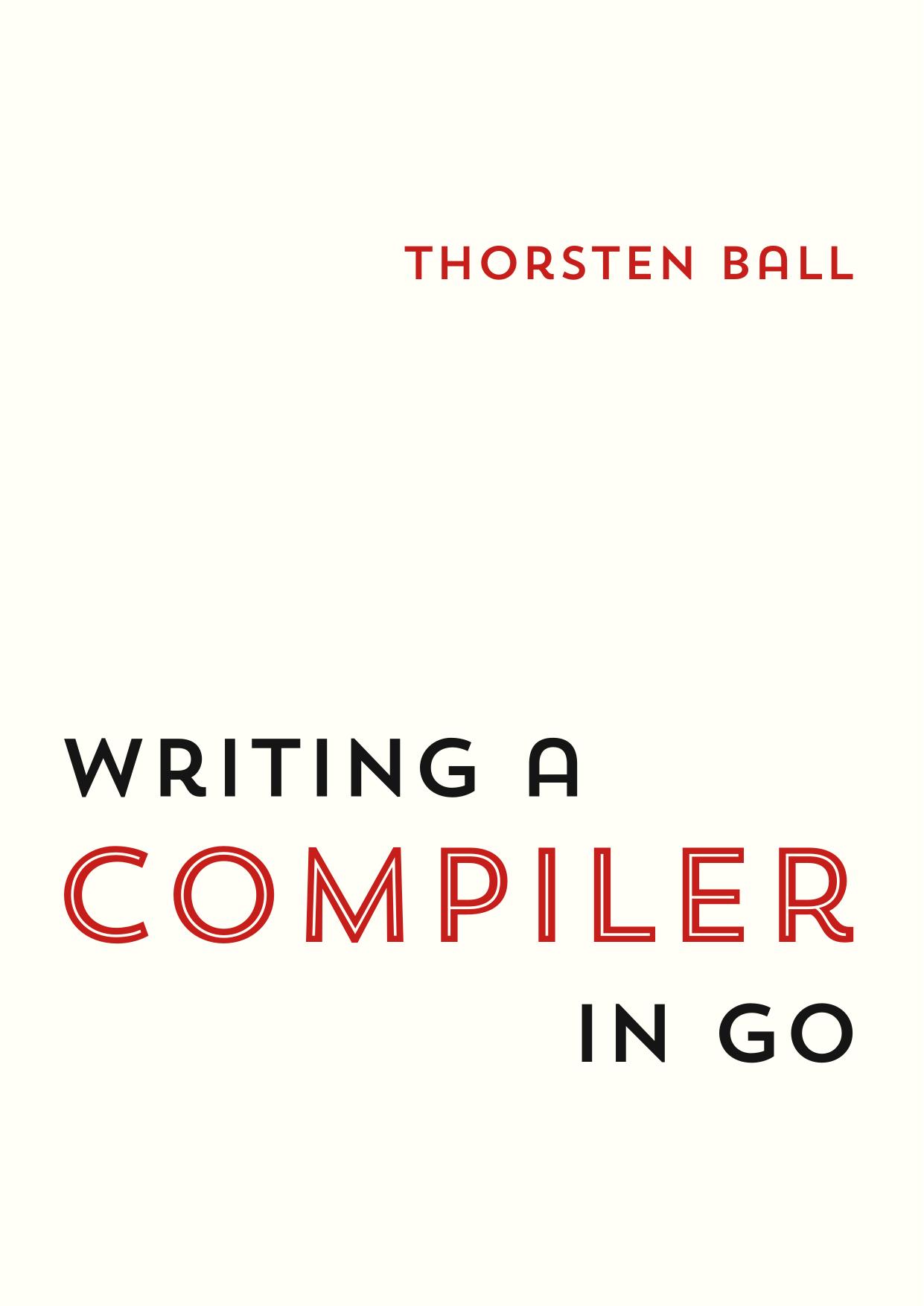Writing A Compiler In Go by Thorsten Ball

Author:Thorsten Ball [Ball, Thorsten]
Language: eng
Format: epub, pdf
Published: 2018-07-28T23:00:00+00:00
In executeBinaryOperation the conditional has been changed into a switch statement with a new case branch for strings. There, we delegate the actual adding of two strings to executeBinaryStringOperation, which unwraps the *object.Strings, concatenates the underlying Go strings and pushes the result back on to the VM’s stack.
And that’s it:
$ go test ./vm ok monkey/vm 0.028s
Monkey strings are now fully implemented, including string concatenation. Next up: arrays.
Array
Arrays are the first composite data type we’re adding to this Monkey implementation. That means, roughly speaking, arrays are composed out of other data types. The practical consequence for us is that we can’t treat array literals as constant expressions.
Since an array is made up of multiple elements and an array literal consists of multiple expressions that produce these elements, the value of the array literal itself might change between compile and run time. Here’s an example:
[1 + 2, 3 + 4, 5 + 6]
Download
This site does not store any files on its server. We only index and link to content provided by other sites. Please contact the content providers to delete copyright contents if any and email us, we'll remove relevant links or contents immediately.
The Mikado Method by Ola Ellnestam Daniel Brolund(22430)
Hello! Python by Anthony Briggs(21619)
Secrets of the JavaScript Ninja by John Resig Bear Bibeault(20183)
Dependency Injection in .NET by Mark Seemann(19563)
The Well-Grounded Java Developer by Benjamin J. Evans Martijn Verburg(19309)
Kotlin in Action by Dmitry Jemerov(19231)
OCA Java SE 8 Programmer I Certification Guide by Mala Gupta(18772)
Algorithms of the Intelligent Web by Haralambos Marmanis;Dmitry Babenko(17574)
Adobe Camera Raw For Digital Photographers Only by Rob Sheppard(16960)
Grails in Action by Glen Smith Peter Ledbrook(16724)
Test-Driven iOS Development with Swift 4 by Dominik Hauser(10922)
Becoming a Dynamics 365 Finance and Supply Chain Solution Architect by Brent Dawson(8064)
Microservices with Go by Alexander Shuiskov(7829)
Practical Design Patterns for Java Developers by Miroslav Wengner(7731)
Test Automation Engineering Handbook by Manikandan Sambamurthy(7689)
Angular Projects - Third Edition by Aristeidis Bampakos(7175)
The Art of Crafting User Stories by The Art of Crafting User Stories(6622)
NetSuite for Consultants - Second Edition by Peter Ries(6542)
Demystifying Cryptography with OpenSSL 3.0 by Alexei Khlebnikov(6313)
